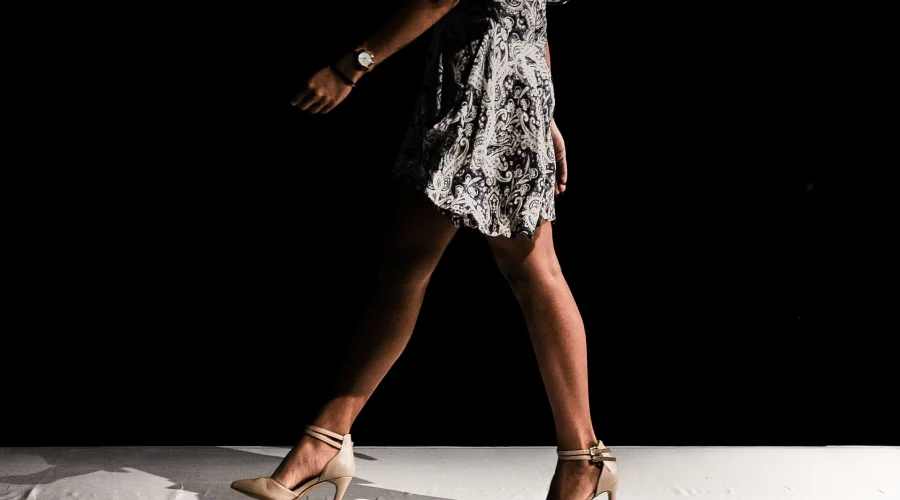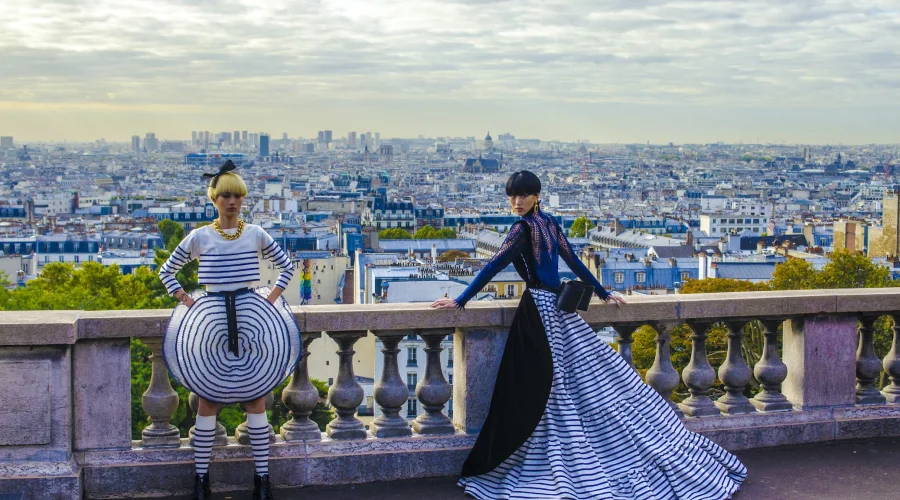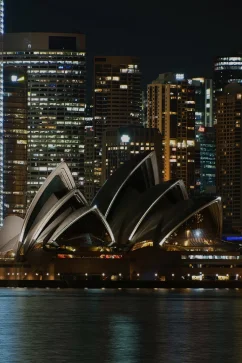Paris Fashion Week

Fashion Week Paris, also known as Paris Fashion Week, is one of the most prestigious and influential events in the global fashion industry. It is part of the “Big Four” fashion weeks, along with New York, London, and Milan, and it is renowned for showcasing the latest collections from some of the world’s most renowned fashion houses and designers.
Paris Fashion Week, often referred to as the pinnacle of the fashion world, is a biannual event that leaves an indelible mark on the global fashion landscape. This enchanting spectacle takes place in the heart of the City of Light, where elegance and style are as ubiquitous as croissants and café au lait. In this article, we delve into the mesmerizing world of Paris Fashion Week, exploring its history, significance, and the unparalleled fusion of haute couture and street style that defines the event.
History
Paris has a long and storied history in the world of fashion. The city has been a center of fashion and luxury since the 17th century, and its influence on the fashion world has only grown over the years. The modern Paris Fashion Week as we know it today began in the 20th century.
Paris Fashion Week is held twice a year, typically in February/March (Fall/Winter collections) and September/October (Spring/Summer collections). These events set the tone for fashion trends in the upcoming seasons.
Paris is synonymous with haute couture, which refers to high-end, made-to-measure fashion created by prestigious designers. The Paris Fashion Week Haute Couture shows are a highlight of the fashion calendar, featuring exquisite craftsmanship and creativity.
Ready-to-Wear
In addition to haute couture, Paris Fashion Week also includes presentations of ready-to-wear (prêt-à-porter) collections. These collections are more accessible and are designed for mass production and retail.
Paris Fashion Week is not only about what happens on the runway but also on the streets. It’s known for its vibrant street style, with fashion influencers and attendees showcasing their unique and cutting-edge looks.
Overall, Paris Fashion Week is a celebration of creativity, innovation, and style. It sets the stage for the fashion trends that will shape the industry and influence wardrobes around the world.

Iconic Venues
Fashion shows are held in iconic Parisian venues, including the Carrousel du Louvre, Palais Royal, and various designer boutiques and ateliers throughout the city.
Paris Fashion Week attracts the crème de la crème of the fashion world, including renowned designers like Chanel, Dior, Louis Vuitton, Givenchy, and many others. Emerging designers also have a platform to showcase their talent.
Fashion editors, celebrities, buyers, and fashion enthusiasts from around the world flock to Paris to attend the shows, making it a major international event.
Global Influences
Paris Fashion Week attracts designers and attendees from around the world, making it a melting pot of styles, cultures, and influences. It’s where the traditional craftsmanship of French fashion marries contemporary global trends. The event reflects the international nature of the fashion industry and the unifying power of clothing. Fashion Week in Paris is one of the most iconic and influential events in the global fashion industry. It serves as a stage where the world’s most renowned fashion houses, designers, models, and fashionistas converge to showcase their latest collections and set the tone for upcoming fashion trends. Beyond its glamour and glitz, Paris Fashion Week wields substantial global influence in several key ways:
- Trendsetting: Paris Fashion Week often determines the fashion trends that will dominate the industry in the coming seasons. What walks down the runways in Paris is closely watched by designers, retailers, and fashion enthusiasts worldwide. The styles, color palettes, and fabrics presented in Paris often find their way into the mainstream, impacting what consumers will see on the racks of their favorite stores.
- Economic Impact: The economic impact of Paris Fashion Week is substantial. The event generates significant revenue for the city of Paris and the entire fashion ecosystem, including hotels, restaurants, local retailers, and tourism. Many emerging designers depend on the exposure they receive during fashion week to boost their businesses globally.
- Cultural Exchange: Fashion Week in Paris has evolved into a global cultural exchange. It attracts designers, models, and attendees from around the world, fostering cross-cultural collaborations and synergies. This cultural exchange broadens the perspectives of the fashion industry, inspiring diverse voices and aesthetics.
- Media and Social Media: Paris Fashion Week is a media juggernaut. Traditional media outlets, fashion magazines, bloggers, and influencers from various corners of the world converge in Paris to report on the latest trends. This extensive coverage amplifies the influence of the event and reaches an international audience. Social media platforms, in particular, have further extended the reach of Paris Fashion Week, making it accessible to a global online community.
- Luxury Market: Paris is synonymous with luxury fashion. The week-long event reaffirms the city’s status as the global hub for luxury brands. Luxury fashion houses like Chanel, Louis Vuitton, and Dior, among others, showcase their collections during Paris Fashion Week, shaping the luxury market worldwide. The perception of Paris as the epitome of luxury and elegance is inextricably linked with its fashion week.
- Environmental and Ethical Impact: In recent years, Paris Fashion Week has increasingly focused on sustainability and ethics within the fashion industry. The event serves as a platform to discuss these critical issues and introduces sustainable practices and materials to a global audience, encouraging the fashion world to embrace responsible fashion.
- Inclusivity: The fashion industry has come under scrutiny for its lack of diversity. Paris Fashion Week plays a pivotal role in advocating for inclusivity. It has featured a more diverse range of models and designers, reflecting the changing global demographics and fostering a sense of belonging for everyone in the world of fashion.
In conclusion, Paris Fashion Week is not just a local event for fashion enthusiasts; it’s a global phenomenon. It shapes the industry, drives economic growth, encourages cultural exchange, influences media and social platforms, and sets the tone for the future of fashion. Its global reach and impact are undeniable, making it a focal point for fashion trends, creativity, and industry standards worldwide.

The Evolution of Paris Fashion Week
Over the years, Paris Fashion Week has evolved. It has become more accessible to the public, thanks to digital streaming and social media. This democratization of fashion has broadened its appeal beyond the elite, allowing fashion enthusiasts from all walks of life to participate in the spectacle. Paris Fashion Week has a rich history that spans over a century, and its evolution reflects the changing landscape of the global fashion industry. From its early beginnings to its current status as one of the most prestigious events on the fashion calendar, Paris Fashion Week has undergone several key transformations:
- The Birth of Haute Couture: The roots of Paris Fashion Week can be traced back to the birth of haute couture in the mid-19th century. In 1858, English couturier Charles Frederick Worth, who worked in Paris, organized the first-ever fashion show to present his designs to clients. This marked a significant departure from the traditional practice of having clients visit the atelier. Worth’s innovative approach laid the foundation for modern fashion shows.
- Post-World War II Resurgence: Paris Fashion Week took a brief hiatus during World War II, but it re-emerged with newfound energy in 1945. During the post-war years, French designers, such as Christian Dior, revolutionized fashion with the “New Look.” This era marked a departure from the austerity of wartime fashion, and Paris reasserted its position as a fashion capital.
- Expansion to Prêt-à-Porter: While haute couture remained central to Paris Fashion Week, the event expanded to include ready-to-wear (prêt-à-porter) collections. In 1973, the French Ministry of Industry created the “Fédération française de la couture du prêt-à-porter des couturiers et des créateurs de mode” to organize and promote French fashion. This development broadened the event’s appeal and accessibility.
- Globalization: Over the years, Paris Fashion Week attracted a diverse and international audience. It became a global phenomenon, drawing designers, models, and media from around the world. The event’s global reach contributed to the internationalization of fashion, with designers hailing from various countries participating in the Parisian showcase.
- Digital Transformation: In the 21st century, the fashion industry underwent a digital transformation, and Paris Fashion Week adapted to this shift. Live-streamed shows, social media engagement, and online publications became integral to the event. This digital evolution democratized fashion, allowing a global audience to participate virtually.
- Sustainability and Inclusivity: Recent iterations of Paris Fashion Week have seen a growing emphasis on sustainability and inclusivity. Designers have incorporated eco-friendly practices, and the event has become a platform to address ethical concerns within the fashion industry. Paris Fashion Week has also made strides in promoting diversity, with more inclusive casting and representation on the runways.
- Couture Shows: While prêt-à-porter collections remain a central focus, Paris Fashion Week continues to celebrate haute couture. Couturiers like Chanel and Givenchy present their most extravagant and exquisite creations, emphasizing the enduring allure of craftsmanship and artistry in the fashion world.
- Fashion Tech: With the increasing influence of technology in fashion, Paris Fashion Week has embraced innovation. Virtual reality, augmented reality, and artificial intelligence have been integrated into runway shows and presentations, creating immersive and interactive fashion experiences.
- Men’s and Women’s Collections: Paris Fashion Week features both men’s and women’s collections, with designers often presenting them during the same event. This reflects the blurring of gender lines in fashion and the move toward more gender-inclusive clothing.
In conclusion, the evolution of Paris Fashion Week mirrors the broader changes in the fashion industry. From its origins in haute couture to its embrace of ready-to-wear, globalization, digitalization, sustainability, and inclusivity, the event continues to set the standard for fashion worldwide. It remains a platform where tradition meets innovation, and where the past and the future of fashion intersect.
The Fashion Capital’s Legacy
Paris Fashion Week leaves an enduring legacy. Its influence on fashion trends, styles, and the global fashion industry cannot be overstated. Paris continues to set the bar for elegance and innovation, reminding the world why it remains the fashion capital. Paris, often referred to as “The Fashion Capital of the World,” boasts a rich and enduring legacy in the world of fashion. This legacy is deeply rooted in history and continues to influence the global fashion industry in numerous ways:
- Haute Couture Tradition: Paris is synonymous with haute couture, a tradition that dates back to the mid-19th century. Haute couture houses like Chanel, Dior, and Givenchy produce exquisite, made-to-measure garments that are celebrated for their craftsmanship and attention to detail. These creations set the highest standard for quality and luxury in the fashion world.
- Birthplace of Modern Fashion Shows: Paris played a pivotal role in shaping the modern fashion show. English couturier Charles Frederick Worth organized the first recorded fashion show in Paris in 1858, transforming the way fashion was presented. Since then, Paris Fashion Week has become a global benchmark for showcasing the latest collections.
- Style Icons and Innovators: Paris has been home to numerous fashion icons and innovators. Designers like Coco Chanel, Yves Saint Laurent, and Karl Lagerfeld have left an indelible mark on the industry with their revolutionary designs. These individuals have redefined women’s fashion, menswear, and even children’s clothing.
- Timeless Pieces: Parisian fashion is characterized by its emphasis on timeless pieces and classic styles. The Little Black Dress, the Breton shirt, and the trench coat are just a few examples of Paris’s enduring fashion contributions. These items have become staples in wardrobes around the world.
- Influence on Art and Culture: The connection between fashion, art, and culture is evident in Paris. The city’s museums, like the Louvre and the Musée des Arts Décoratifs, often feature fashion exhibitions. Paris’s artistic heritage, from Impressionism to Surrealism, has inspired countless designers and collections.
- Educational and Research Institutions: Paris is home to some of the world’s most prestigious fashion schools, such as the Institut Français de la Mode and the Ecole de la Chambre Syndicale de la Couture Parisienne. These institutions nurture emerging talent and contribute to the city’s fashion legacy.
- Paris Fashion Week: Paris Fashion Week stands as a pinnacle in the fashion calendar. The event showcases collections from renowned designers and emerging talents alike. Buyers, editors, and fashion enthusiasts from around the world flock to Paris to witness the latest trends, setting the tone for the industry.
- Global Luxury Hub: Paris serves as a global hub for luxury fashion. It houses the headquarters and flagship stores of numerous high-end brands, including Louis Vuitton, Hermès, and Cartier. These brands have a profound influence on luxury fashion trends and consumer behavior.
- Sustainable Initiatives: Paris has also taken steps to promote sustainability within the fashion industry. Many designers and brands based in the city have embraced eco-friendly practices and ethical sourcing. Paris Fashion Week now includes sustainable fashion presentations, reflecting a commitment to a more responsible future.
- Diversity and Inclusivity: Paris has increasingly embraced diversity and inclusivity in the fashion world. Fashion houses are casting a broader range of models, and the city’s runways are more representative of different cultures and identities. This shift reflects a broader industry movement toward greater inclusivity.
In conclusion, the legacy of Paris as the fashion capital of the world is multifaceted. It encompasses a rich history of haute couture, innovative designers, and enduring style icons. Paris continues to lead the way in setting global fashion trends, emphasizing timeless elegance, sustainability, and inclusivity in the modern fashion landscape. Its influence extends far beyond the runways and into the very fabric of the fashion industry and culture itself.

Conclusion
Paris Fashion Week, a biannual extravaganza celebrating the art of fashion stands as an iconic testament to the City of Light’s enduring influence on the global sartorial landscape. As designers, models, influencers, and fashion enthusiasts from around the world flock to the French capital, the city metamorphoses into a living fashion gallery where creativity knows no bounds.
This celebration of style has deep-rooted origins, dating back to the early 20th century when Parisian fashion houses began to showcase their designs to exclusive clientele. The fashion event’s division into spring/summer and autumn/winter collections exemplifies the industry’s dynamism and ever-evolving nature. A pivotal facet of Paris Fashion Week is the haute couture extravaganza. Renowned fashion maisons like Chanel, Dior, and Givenchy epitomize this pinnacle of craftsmanship. Haute couture blurs the lines between fashion and art, pushing the boundaries of creativity with one-of-a-kind pieces that mesmerize audiences.
The iconic venues of Paris, such as the Grand Palais, the Louvre Museum’s Cour Carrée, and sumptuous hotels, provide the perfect backdrop for the event’s grandeur. The diversity of attendees from around the globe transforms Paris Fashion Week into a melting pot of styles, cultures, and influences, reflecting the universal appeal of clothing. Paris Fashion Week continues to evolve, embracing accessibility through digital streaming and social media. This democratization of fashion signifies the industry’s commitment to inclusivity, allowing fashion enthusiasts worldwide to partake in the splendor.
More than just a celebration of clothing, Paris Fashion Week embodies creativity, culture, and identity. It stands as a tribute to the ever-changing world of fashion, where the traditional coexists harmoniously with the avant-garde, and where the runway and the sidewalk converge into a mesmerizing tapestry of self-expression.
In its enduring legacy, Paris Fashion Week underlines the city’s unmatched role in shaping elegance and innovation. The world looks to Paris as the foremost fashion capital, where dreams are woven into fabric, and where the language of style transcends borders and connects humanity through a shared passion for beauty and creativity. As we bid adieu to another unforgettable Paris Fashion Week, we eagerly anticipate the next chapter of this extraordinary fashion journey.









